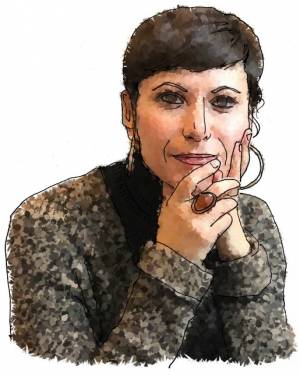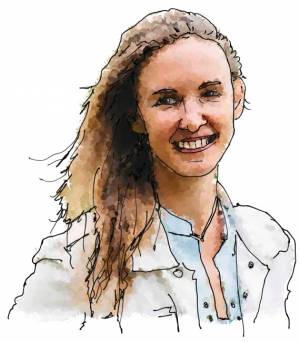Dialogue 15: Capitalism, Its Crises and Its Alternatives: Understanding Real Utopias
This session is part of the Webinar "Dialogue on Alternatives in the Time of Global Crises".
Dialogue 15: Capitalism, Its Crises and Its Alternatives: Understanding Real Utopias
with Lara Monticelli, sociologist, and Suryamayi Clarence-Smith, Auroville-born and raised anthropologist as presenters
To confront the multiple crises characterising contemporary capitalism, we need a historical understanding of its functioning and its elements of instability. The debate on capitalism came back to the fore due to the financial crisis of 2007-2008. Today, more than ten years later, capitalism is still the dominant system and we often hear terms like Capitalocene, platform capitalism, surveillance capitalism, accelerations, post-capitalism. In the context of its resilience, how do we work for systemic and progressive change? One example is that of prefigurative social movements. Intentional communities like Auroville in southern India can show how change can happen through interstitial mechanisms of karst-like erosion of capitalism from within.
- Date: Thursday 17th December
- Time: 13:30 (UTC/GMT)
- Duration: 120 minutes
Recording
About the presenters
Lara Monticelli

Lara Monticelli is a political and economic sociologist, lecturer and public speaker interested in the critical study of capitalism, its crises and its alternatives. She works as Assistant Professor and Marie Curie fellow at Copenhagen Business School (Denmark). Since 2016, she is the co-chair of the international and interdisciplinary research network “AlternativesAre activities and initiatives, concepts, worldviews, or action proposals by collectives, groups, organizations, communities, or social movements challenging and replacing the dominant system that perpetuates inequality, exploitation, and unsustainabiity. In the GTA we focus primarily on what we call "radical or transformative alternatives", which we define as initiatives that are attempting to break with the dominant system and take paths towards direct and radical forms of political and economic democracy, localised self-reliance, social justice and equity, cultural and knowledge diversity, and ecological resilience. Their locus is neither the State nor the capitalist economy. They are advancing in the process of dismantling most forms of hierarchies, assuming the principles of sufficiency, autonomy, non-violence, justice and equality, solidarity, and the caring of life and the Earth. They do this in an integral way, not limited to a single aspect of life. Although such initiatives may have some kind of link with capitalist markets and the State, they prioritize their autonomy to avoid significant dependency on them and tend to reduce, as much as possible, any relationship with them. to Capitalism” at the Society for the Advancement of Socio-Economics (SASE). She is also the co-editor of a forthcoming book series titled “Alternatives to Capitalism in the 21st Century” with Bristol University Press. Her ongoing Marie Skłodowska-Curie project (2018-2021), titled ‘EcoLabSS – Ecovillages as Laboratories of Sustainability and Social Change’, focuses on the (re)emergence of community-based, prefigurative social movements (e.g., intentional communities, eco-villages, transition towns, solidarity networks) as living laboratories experimenting with practices of resilience and resistance to environmental, economic and societal challenges. Lara is especially interested in how these movements re-politicize and re-configure everyday life, thus representing radical attempts to embody the critique to contemporary capitalism and prefigure alternative, sustainable futures.
Suryamayi Clarence-Smith

Suryamayi Clarence-Smith was born and raised in Auroville, the largest, most diverse, and amongst the oldest intentional communities in existence today. She has been exploring how Auroville’s ideals are engaged in practice in this experimental community, through autoethnographic research, since 2015. She completed a doctoral thesis in Development Studies at the University of Sussex in 2019, building on an award-winning undergraduate thesis on Auroville in Interdisciplinary Studies at the University of California, Berkeley. Suryamayi’s research explores many aspects of Aurovilian society – notably socio-economy, collective organization, and education – and speaks to broader frameworks of utopian and prefigurative practice, social economy and alter-development, integral yoga and education, learning societies, community and intentional community. She has presented and published insights from this work to academic and non-academic audiences internationally, and continue to be struck by Auroville's richness as a site of experimentation in many fields, and the potential for insightful and impactful research to be produced here towards reimagining and reshaping human society.